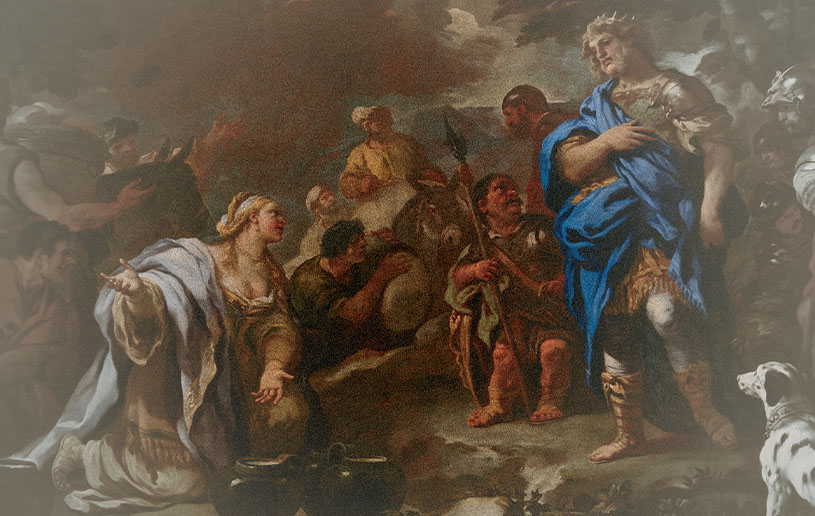
Abigail from the Old Testament had impressive character. Her example serves as inspiration for how individuals can navigate difficult situations with wisdom, humility, and resourcefulness.
Name
The name Abigail means “my father’s joy.”
Outstanding Characteristics
Wisdom, humility, and resourcefulness.
Summary
Abigail was the wife of Nabal, a descendant of Caleb. His name means “fool.” He was a crude, mean, and wealthy boor whose flocks and shepherds were protected by David and his men. In return for the protection, David asked Nabal for some food and water. Nabal refused and instead insulted David. In response, David set out with 400 men to slaughter Nabal and his household. In contrast to her husband, Abigail realized that Nabal’s insult in failing to give gifts to David’s men offended David and endangered their whole household. Through her resourcefulness, she took gifts of food and drink and waylaid David as he was planning his attack, thus preventing bloodshed. David was impressed by Abigail’s wisdom and resourcefulness and because of it, he thanked God. When Abigail told Nabal of her action, he appreciated the narrowness of their escape, had an apoplectic fit, and died at the hand of God. David then married Abigail and she became the mother of Chileab, David’s second son.
Key Scripture
David replied to Abigail, “Praise the LORD, the God of Israel, who has sent you to meet me today! Thank God for your good sense! Bless you for keeping me from murder and from carrying out vengeance with my own hands.” (1 Samuel 25:32–33)
Lessons Learned
1. Differences bring opportunity
Differences between husbands and wives do not mean that the marriage cannot continue (vv. 3). Differences bring conflict as well as opportunities for growth and change. Disagreements may rise on occasion, but as iron sharpens iron, so one person can sharpen another (Proverbs 27:17).
2. Peacemaking and reconciliation
Abigail’s actions exemplify the importance of peacemaking and reconciliation. Instead of allowing conflict to escalate, she seeks to make peace with David and prevent bloodshed. Her willingness to seek reconciliation demonstrates her commitment to harmony.
3. Goodness protects
Abigail represents wisdom and resourcefulness (vv. 17–18). A wife is to love her husband and it is God’s responsibility to make him good. As a woman of integrity, she chose to protect her husband, not because he deserved it or was good, but because she was good.
4. The wisdom of silence and good timing
Silence and good timing are two of the most effective ways to handle a strained relationship (vv. 19, 36). Abigail wisely chose what and when to tell her husband about her meeting with David. “In the same way, you wives must accept the authority of your husbands. Then, even if some refuse to obey the Good News, your godly lives will speak to them without any words. They will be won over by observing your pure and reverent lives” (1 Peter 3:1–2). Abigail’s gentle and quiet spirit knew instinctively what to say and when to say it.
5. Insensitivity hurts and offends others
Nabal was insensitive to the help he received from David and his men, which resulted in David being offended. Some wives are insensitive to their husbands and rob them of dignity with disrespect, continual criticism, and dismissive attitudes. Some husbands strip their wives of self-worth and value by dismissing their counsel and failing to see their positive qualities.
6. Trust in God earns honour
Obedience often requires us to sacrifice something we want in favour of what God desires. Abigail entrusted her future to God and in this case, Abigail was relieved of the strain. In other cases, God gives grace to bear the strain. “This is how the holy women of old made themselves beautiful. They put their trust in God and accepted the authority of their husbands” (1 Peter 3:5).
Abigail’s story teaches valuable lessons about wisdom, courage, peacemaking, humility, trust in God, and resourcefulness.

